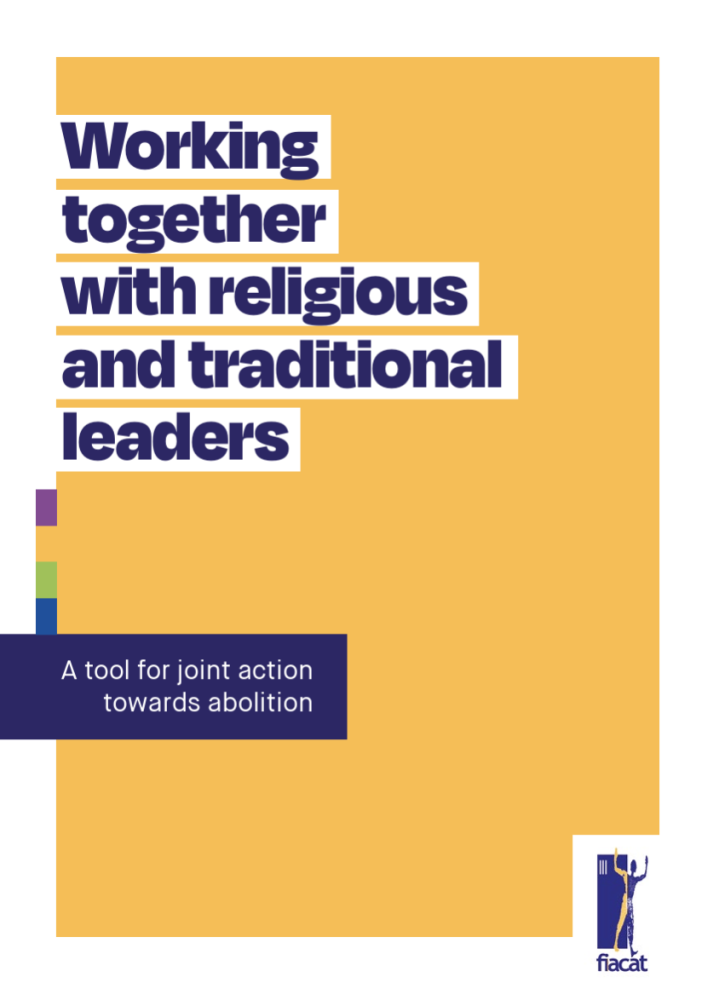Abolition of the death penalty cannot be imposed solely through legal or judicial means. It requires a deep-rooted transformation in people’s ways of thinking, which inevitably involves bringing together opinion-makers in their diversity. The media, through to their ability to inform and raise awareness among the wider public, civil society organisations, through their grassroots bases and expertise, and opinion makers of all backgrounds through their influence on public debates, all provide vital bridges to bring about change in how this practice is perceived. Among these influential actors, religious and traditional leaders occupy a special place. Sub-Saharan Africa is one of the regions in the world where religion plays a most primordial role (1). Where communities continue to turn towards their spiritual guides to seek explanation for complex moral questions and guide their collective choices, their commitment to the abolitionist fight is a profound necessity.
Working together with religious and traditional leaders

Year: 2025
Resource Type:
Guidelines
Training Materials
Guidelines
Training Materials
Themes:
Activism
Courts Systems
Human Rights
Activism
Courts Systems
Human Rights
Region:
Africa
Africa
People Groups:
People in Detention
People in Detention
Approach:
Advocacy
Capacity Building
Law Reform
Advocacy
Capacity Building
Law Reform
Campaign Partner:
International Federation of ACATs (Action by Christians for the Abolition of Torture)
International Federation of ACATs (Action by Christians for the Abolition of Torture)
